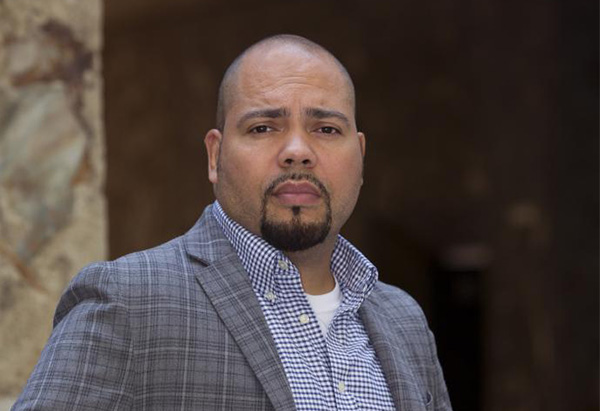 Julian Vasquez Heilig, a fixture among influential scholars, shares credit with Sac State faculty. (Sacramento State file)
Julian Vasquez Heilig, a fixture among influential scholars, shares credit with Sac State faculty. (Sacramento State file)Julian Vasquez Heilig has spent much of his day at the state Capitol building, talking with legislators about his research into charter schools.
“I guess that’s why I’m on the list,” he quips.
The “list” is the “Rick Hess Straight Up” (RHSU) Edu-Scholar Public Influence Rankings published annually by the American Enterprise Institute, which honors the nation’s most influential scholars on issues of public policy. It recognizes university-based academics who shape public discussions of education by doing the most to move ideas from academic journals into the national conversation.
Of the tens of thousands of scholars eligible, only 200 make the list. Heilig, appearing for the fifth consecutive year, is the only representative from the California State University and one of only two not from a doctoral-level institution. At Sacramento State, he is a professor of educational leadership and policy studies and director of the Doctorate in Educational Leadership program.
Heilig credits his inclusion on the list to his emphasis both on making his work as accessible to the public as possible and on engaging with the community, which he says are hallmarks of the doctoral program. It’s also something that aligns closely with University President Robert S. Nelsen’s desire to establish Sacramento State as an “anchor institution” – which Nelsen defines as the opposite of an ivory tower.
“Our faculty win awards, you’ll see them on TV, you’ll hear them on NPR,” Heilig said. “We have a great group of faculty who are engaged in the public conversations of today. I feel fortunate to make the list, but I’m on a team and that team embodies excellence.”
Scholars on the list are ranked – Heilig came in at 170 – based on a variety of metrics designed to evaluate how well they contribute to public discussions of education. Heilig scored highest in the “Google Scholar” metric, which uses Google to track how often an academic’s work is cited by others. He credits this to his habit of publishing his peer reviewed research to paywall-free websites and posting PDFs to his blog.
Heilig also scored highly in the “web mentions” and Twitter credibility metrics, a reflection of his preference for open access and digital media rather than books.
“I want my work to be available to all audiences, not just academic audiences,” said Heilig, whose blog, Cloaking Inequality, has been read by nearly 1 million people. His current research includes examining school choice, how high-stakes testing and reforms impact urban minority students, and issues of access, diversity, and equity in higher education.
“One of the things that defines the CSU is its focus on community engagement,” Heilig said. “My work is focused on community-based approaches to reform and education policy. How ... we engage communities and empower them and create spaces for self-determination, for changing their schools.”
And that community extends far beyond Sacramento or California. In July, Heilig will travel to Thailand for the Education World Conference, where he will join delegates from across the globe to discuss solutions to education challenges in countries across the world. – Jonathan Morales
